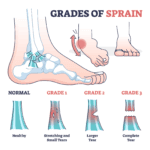Understanding Back Pain and Prevention
As you age, your spinal discs naturally begin to degenerate, increasing the risk of back pain and other spinal conditions. This makes it crucial to adopt proactive measures to maintain spinal health.
Whether you’ve had surgery for a spinal condition or have never experienced back pain, implementing lifestyle changes now can significantly reduce the likelihood of future discomfort and spinal issues.
10 Effective Tips to Protect Your Back
- Stay Active: Regular exercise is essential for reducing inflammation and easing muscle tension, helping to prevent back pain.
- Adopt Healthy Eating Habits: A balanced diet supports your nervous system and promotes proper intestinal function, which can indirectly benefit spinal health.
- Sleep in the Right Position: Sleeping on your side helps maintain your spine’s natural curvature, reducing the risk of back pain.
- Manage Stress: High stress levels can cause muscle tension, leading to back pain. Exercise is an excellent way to relieve stress and relax your muscles.
- Upgrade Your Mattress: If your mattress is over eight years old, replace it with a firm yet comfortable one to ensure proper back support.
- Maintain Good Posture: Whether seated or standing, use ergonomic support, adjust your workstation, and take breaks to stretch every hour to prevent strain on your back.
- Lift Properly: Always lift with your legs, not your back. Squat down, keep your core engaged, and hold heavy objects close to your body as you lift.
- Adjust Your Car Seat: Position your seat upright and align your headrest with the top of your head to provide adequate neck support while driving.
- Strengthen Your Core: A strong core reduces strain on your back muscles and supports spinal health, preventing discomfort.
- Quit Smoking: Smoking increases sensitivity to pain, restricts blood flow, and limits the delivery of nutrients to muscles and joints, contributing to back problems.
Prevention Before and After Spinal Issues
Taking care of your back is essential both before and after the onset of spinal issues. Activities like exercising, maintaining good posture, and using a supportive mattress can minimize back pain and lower the risk of spinal damage.
If conservative treatments fail to alleviate your back pain, spinal surgery might be an option. A professional evaluation, including a review of your MRIs, can identify conditions like bulging or herniated discs. Specialists at facilities like The Bonati Spine Institute can help determine the right course of action for your spinal health.





